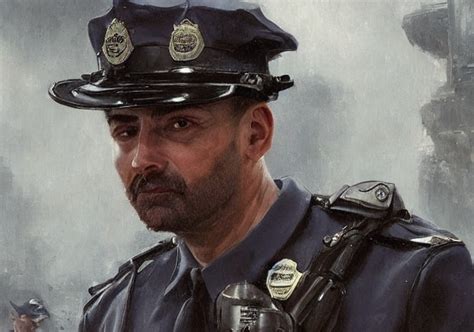Successfully Challenging Police Evidence: Concealed Weapons
Successfully challenging police evidence related to concealed weapons requires meticulous attention to detail, a thorough understanding of the law, and often, the assistance of experienced legal counsel. This process is complex and fraught with legal intricacies, but understanding the key areas where challenges can be mounted can significantly improve your chances of a favorable outcome. This article explores potential avenues for challenging evidence, highlighting crucial considerations for anyone facing such legal difficulties.
What Constitutes Evidence in Concealed Weapon Cases?
Before exploring challenges, let's clarify what kind of evidence police might present. This could include:
- Witness Testimony: Eyewitness accounts placing the weapon in your possession or observing you handling it.
- Physical Evidence: The weapon itself, fingerprints on the weapon or its packaging, DNA evidence, or any other physical trace linking you to it.
- Search and Seizure Evidence: This relates to the legality of the police search that led to the discovery of the weapon. Was a warrant obtained? Was there probable cause for a warrantless search?
- Confessions or Statements: Anything you said to the police, whether incriminating or exculpatory.
- Video or Audio Recordings: Dashcam footage, bodycam footage, or other recordings capturing the events leading to your arrest.
How to Challenge Police Evidence: Key Areas
Successfully challenging evidence often involves attacking its validity or admissibility in court. Here are some crucial areas to consider:
1. Challenging the Legality of the Search and Seizure (Fourth Amendment)
This is arguably the most significant avenue for challenging evidence. If the police obtained the concealed weapon through an illegal search and seizure, the evidence is generally inadmissible under the Fourth Amendment. This requires demonstrating that the police:
- Lacked a Warrant: Did the police have a valid warrant authorizing the search? If not, was there an exception to the warrant requirement (e.g., probable cause, consent, exigent circumstances)? Were the terms of the warrant followed?
- Exceeded the Scope of a Warrant: If a warrant existed, did the search exceed the scope outlined in the warrant?
- Lacked Probable Cause: Even without a warrant, the police must have had probable cause to believe a crime was committed and that evidence of the crime would be found in the place searched.
- Violated Your Rights: Were your rights violated during the stop and search? Were you subjected to an unreasonable seizure?
2. Challenging the Chain of Custody
The chain of custody refers to the unbroken trail of possession of the evidence from the time it was seized until it is presented in court. Breaking this chain casts doubt on the evidence's authenticity and integrity. Challenges might include:
- Missing Links: Can you demonstrate gaps in the chain of custody, where the evidence was not properly accounted for?
- Improper Handling: Was the evidence mishandled or stored improperly, potentially compromising its integrity?
- Tampering: Is there evidence of tampering with the evidence?
3. Challenging Witness Testimony
Witness testimony can be challenged through:
- Credibility: Can you demonstrate inconsistencies or biases in witness statements? Does the witness have a motive to lie?
- Lack of Accuracy: Were conditions unfavorable for accurate observation (poor lighting, distance, etc.)?
- Impeachment: Can you provide contradictory evidence or prior inconsistent statements?
4. Challenging Confessions or Statements (Fifth Amendment)
Confessions obtained in violation of your Fifth Amendment rights (right against self-incrimination) are inadmissible. This could involve:
- Coercion: Were you coerced into making a confession, through threats, promises, or duress?
- Lack of Miranda Warnings: Were you properly informed of your Miranda rights (right to remain silent, right to an attorney)?
5. Challenging the Authenticity of Forensic Evidence
Forensic evidence, such as fingerprints or DNA, can be challenged by questioning:
- The Methodology: Was the appropriate forensic methodology used? Were there any errors in the testing procedures?
- The Reliability: Is the forensic technique reliable and scientifically validated?
- The Interpretation: Were the findings correctly interpreted?
Seeking Legal Counsel
Navigating the complexities of challenging police evidence in concealed weapon cases requires expertise. Consulting with an experienced criminal defense attorney is crucial. They can assess your case, identify potential challenges, and represent your interests effectively throughout the legal process. Remember, this information is for educational purposes only and does not constitute legal advice. Always seek professional legal counsel for your specific situation.

